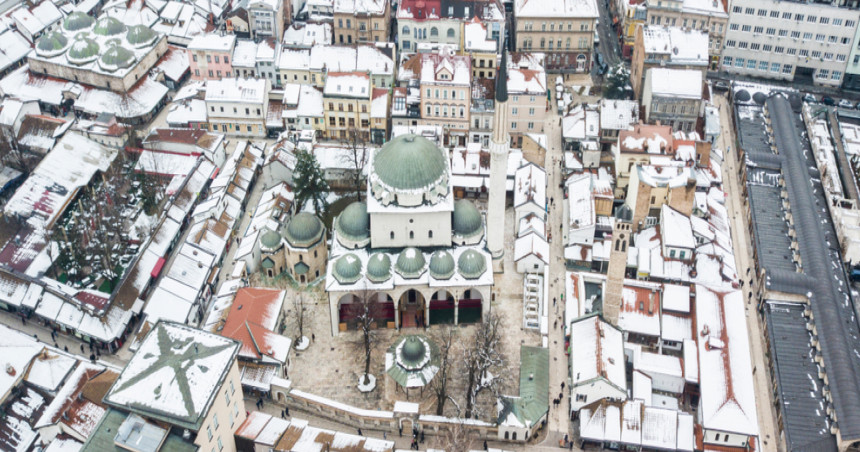In the name of Allah, the Most Gracious, the Most Merciful. All praise is due to Him, and may His peace and blessings be upon His final Messenger, Muhammad.
The idea of an Ummah may be difficult for some to understand, but this is nothing a day or two in Sarajevo cannot cure. The Bosnian capital can truly open a person’s eyes to what it means to belong to a global community based solely on shared Islamic faith.
As Allah says in the Qur’ān,
“The believers, both men and women, are allies of one another.
“They enjoin good, forbid evil, establish prayer, pay zakat, and obey Allah and His Messenger.” [1]
Allah explains it perfectly — the faithful are a people bound together by beliefs and deeds, and are obliged to support one another in times of hardship.
An obligation though it may be, this assistance is often given with genuine concern from one Muslim to another.
And the Prophet ﷺ advised us clearly,
“The parable of the believers in their affection, mercy, and compassion for each other is that of a body. When any limb aches, the whole body reacts with sleeplessness and fever.” [2]
But what would a manifestation of this love and care look like in practical terms?
Enter Sarajevo.
One could reasonably argue that the city is an open-air museum showcasing exemplary moments when Muslims have supported one another in calamitous times on a global scale.
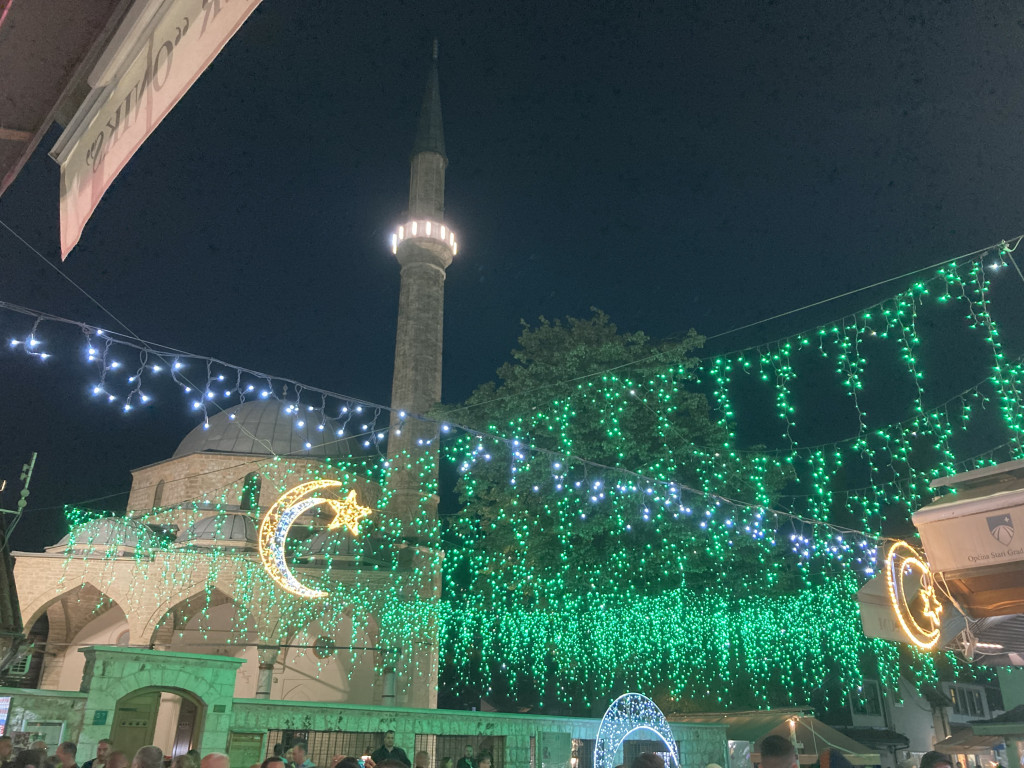
The siege of Sarajevo (1992-96)
Sarajevo has seen its share of calamity.
In April 1992, following the collapse of Yugoslavia, Bosnian Serb forces laid siege to the city for over 1,400 days — carrying out the longest siege of a capital in modern history.
The siege of Sarajevo was devastating for its people and infrastructure. The besieging forces ruthlessly and indiscriminately bombarded the city with an average of 300 artillery shells every day, hitting schools, hospitals, and homes. [3]
Two attacks on a single marketplace saw a total of 111 Sarajevans killed, and more than twice as many injured. Meanwhile, Bosnian Serb snipers added to the daily danger. And a blockade cut off power, water, and food, prompting the UN to implement a multinational humanitarian airdrop to allow aid in.
A supply tunnel connecting the city and its international airport was later established in 1993. Nonetheless, the deliberate and man-made scarcity led to serious malnutrition, and caused older people to die in unheated homes in winter.
Estimates put the total number of casualties at more than 11,500, including 1,601 children.
Sarajevo’s cultural sites were not spared either, and significant damage was done to the historic Ottoman Gazi Husrev-beg Mosque and the neo-Moorish Austro-Hungarian City Hall among others. [4]
Ummatic solidarity
Horrific though they were, these awful events have been met with a humbling brotherly and sisterly response from the Muslim Ummah.
Numerous Muslim-majority countries have stepped in and supported reconstruction efforts in the city.
One powerful example of this came from Indonesia.
During the siege, the then Indonesian President Suharto travelled to Sarajevo to meet his Bosnian counterpart Alija Izetbegović in 1995. After Suharto’s visit, the Indonesian government initiated the construction of a new mosque for the city, to replace one of the many that had been destroyed during the course of the siege. [5]
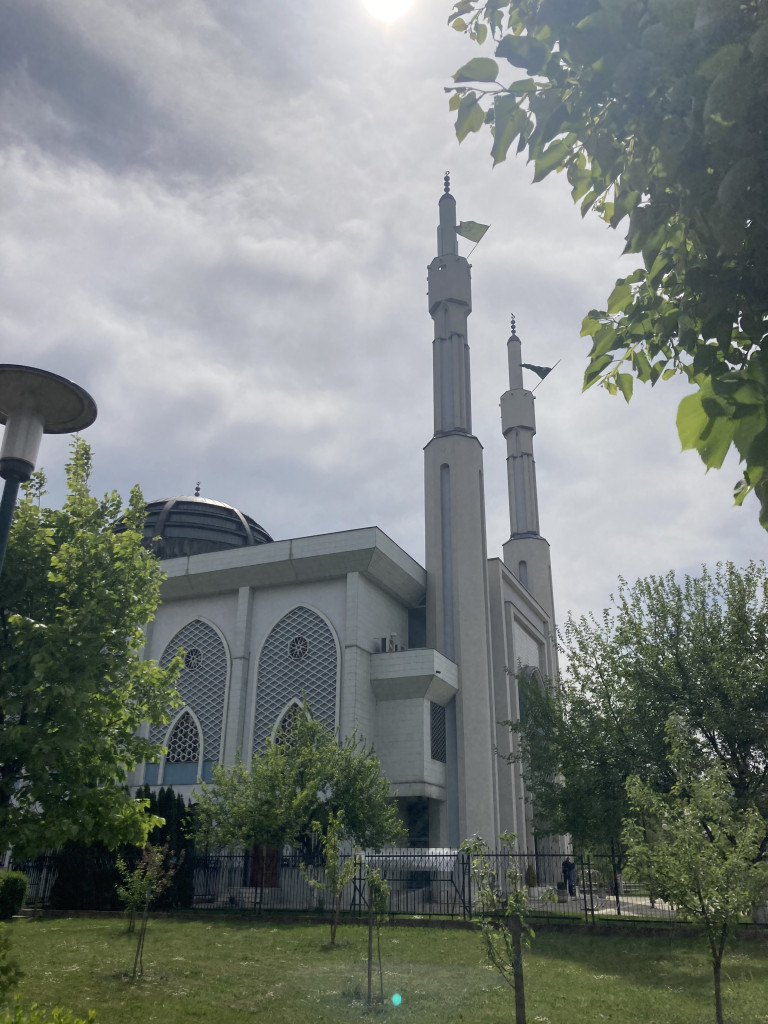
The house of prayer — named “Istiklal” after Jakarta’s largest mosque — was inaugurated several years later in September 2001, with the attendance of Indonesia’s Minister of Religion, Said Agil Husin Al Munawar, who handed it over as a gift from his country to the people of Bosnia and Herzegovina. [6]
The symbolism behind this act is remarkable. South East Asian Muslims reached out to and supported their European brothers and sisters in faith, despite a huge distance of well over 6,000 miles between their two countries. This was an illustration of just how significant Ummatic bonds can be.
Indonesia was not the only country to support the re-establishment of Islamic acts of worship in Sarajevo, either. For instance, both Saudi Arabia and Kuwait funded the construction of new mosques as well.
“Local” connections
Muslim-majority countries not only helped establish these new buildings, but also renovated and restored others, including key cultural sites.
Qatar, for instance, donated funds to rebuild the city’s sixteenth-century Gazi Husrev Beg library.
Turkey has made meaningful contributions as well.
In 2015, the municipality of Osmangazi — a neighbourhood in the Turkish city of Bursa — teamed up with the local council of Stari Grad to undertake a joint reconstruction project in Sarajevo’s iconic Baščaršija Square. This work was supported by the Turkish Cooperation and Coordination Agency (TIKA), a government development body. [7]
The partnership was especially fitting as both localities have significant Ottoman heritage.
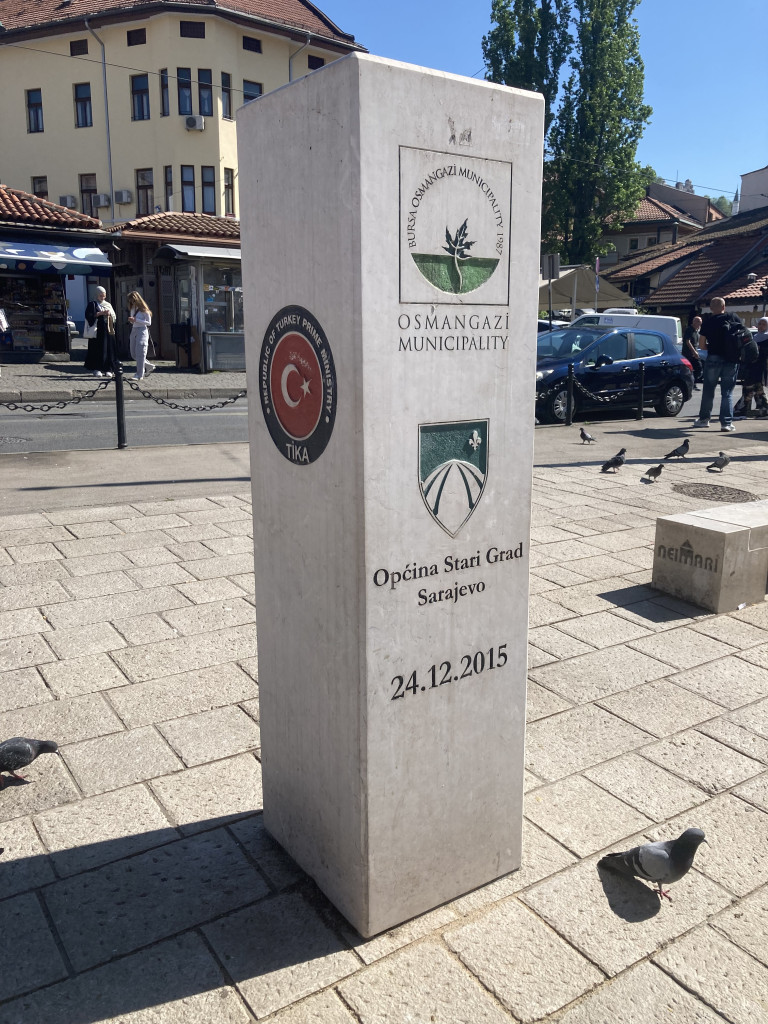
Beyond the cultural sphere, TIKA has backed hundreds of development projects across Bosnia and Herzegovina since the end of the war in 1995. [8]
Some of these have included improvements to hospitals, and the building and renovation of clinics including Sarajevo University’s Haematology Clinic, among others.
And further projects include the agency’s donation of farming equipment to 1,000 families to boost the agricultural sector, and providing occupational training to address unemployment.
All eyes on Gaza
These acts of solidarity at state and even local government level are deeply inspiring.
Better yet, ordinary Sarajevans have shown similar Ummatic sentiments towards the Palestinian people, especially those presently facing the brutal Israeli onslaught in Gaza in circumstances that resemble the siege they experienced.
As a sign at a touristic café in the city’s Old Town reads,
“You don’t need to be Muslim to stand up for Gaza, you just need to be human.”
Keffiyeh shawls symbolising support for Palestinian rights hang on sale at a nearby souvenir shop, while Palestine’s flag flies alongside that of Bosnia and Herzegovina only a short walk away. The message is clear, “Your cause is our cause”.
Let this be a reminder that there is always something we can do to advocate for and support our brothers and sisters at home and abroad, even at the individual level,
“And Allah is the All-Seer of what you do.” [9]
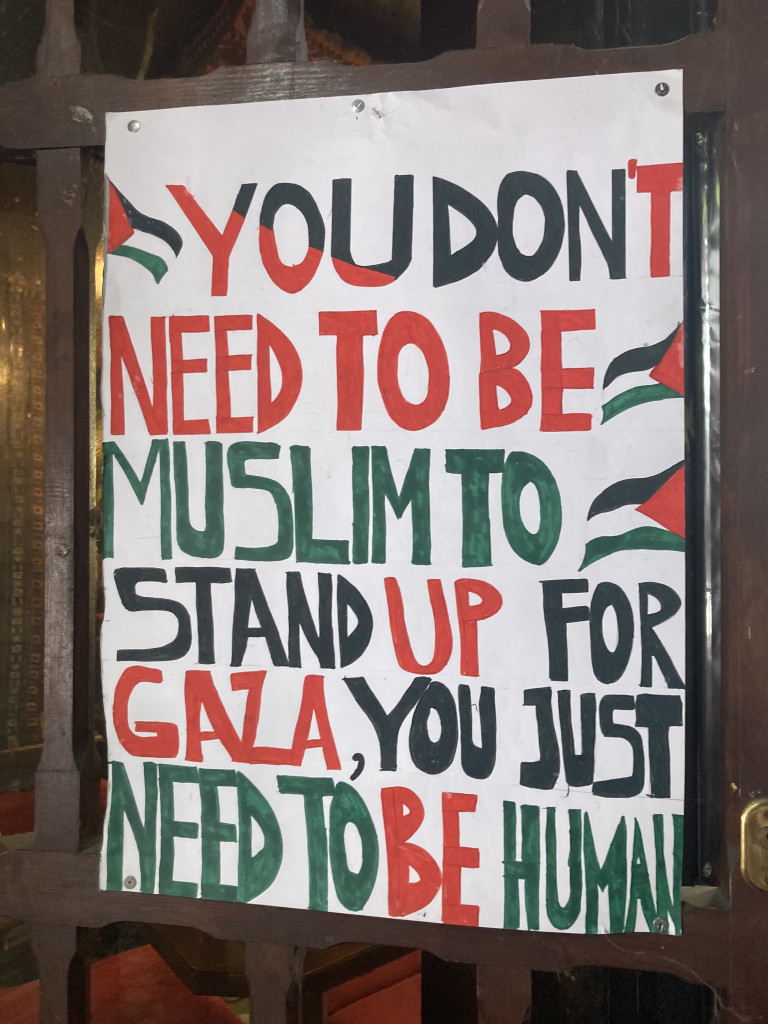
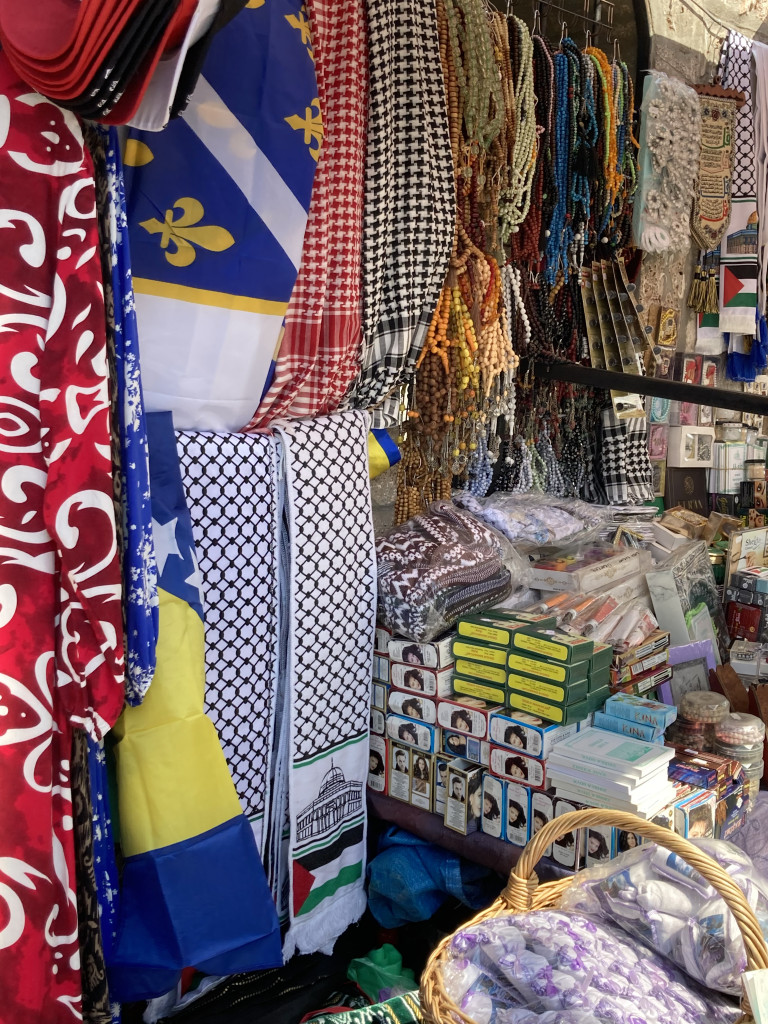
Action points
-
Support oppressed Muslims by making du'ā, writing to your MP, attending protests, and using your skills, resources, and network.
-
Research another part of the Ummah that you are not familiar with, so you can strengthen your affection for fellow Muslims.
-
Tell family and friends about what you have researched, so that they feel more Ummatic, too.
Source: Islam21c
Notes
[1] al-Qur’ān, 9:71
[2] Sahīh al-Bukhārī, 6,011; https://sunnah.com/bukhari:6011 & Sahīh Muslim, 2,586; https://sunnah.com/muslim:2586a
[3] https://www.britannica.com/event/Siege-of-Sarajevo
[5] https://en.tempo.co/read/1184483/when-heart-of-bosnian-ambassador-captivated-by-surabaya
[6] https://voi.id/en/memori/313083
[7] https://sarajevotimes.com/reconstruction-of-the-bascarsija-square-completion-of-works-in-december/
[9] al-Qur’ān, 49:18


